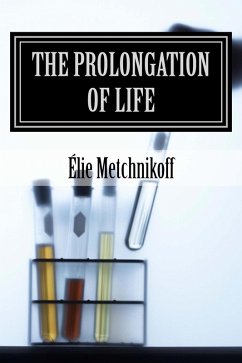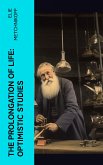The Prolongation of Life, the main thesis is carried further, and a number of criticisms and objections are met. The latter, so far as they relate to technical details, I need say nothing of here, as Metchnikoff and his staff at the Pasteur Institute are the most skilled existing technical experts on these matters, but I cannot refrain from a word of comment on the brilliant treatment of the objection to the suggested amelioration of human life that it considered only the individual and neglected the just subordination of the individual to society. In the sixth Part of this volume, Metchnikoff discusses the relation of the individual to the species, society or colony, from the general point of view of comparative biology, and shows that as organisation progresses, the integrity of the individual becomes increasingly important. Were orthobiosis, the normal cycle of life, attained by human beings, there still would be room for specialisation of individuals and for differentiation of the functions of individuals in society, but instead of the specialisation and differentiation making individuals incomplete throughout their whole lives, they would be distributed over the different periods of the life of each individual. As these lines are intended to be an introduction, not a commentary, I will now leave the reader to follow the argument in the book itself.
Dieser Download kann aus rechtlichen Gründen nur mit Rechnungsadresse in A, B, BG, CY, CZ, D, DK, EW, E, FIN, F, GR, H, IRL, I, LT, L, LR, M, NL, PL, P, R, S, SLO, SK ausgeliefert werden.









